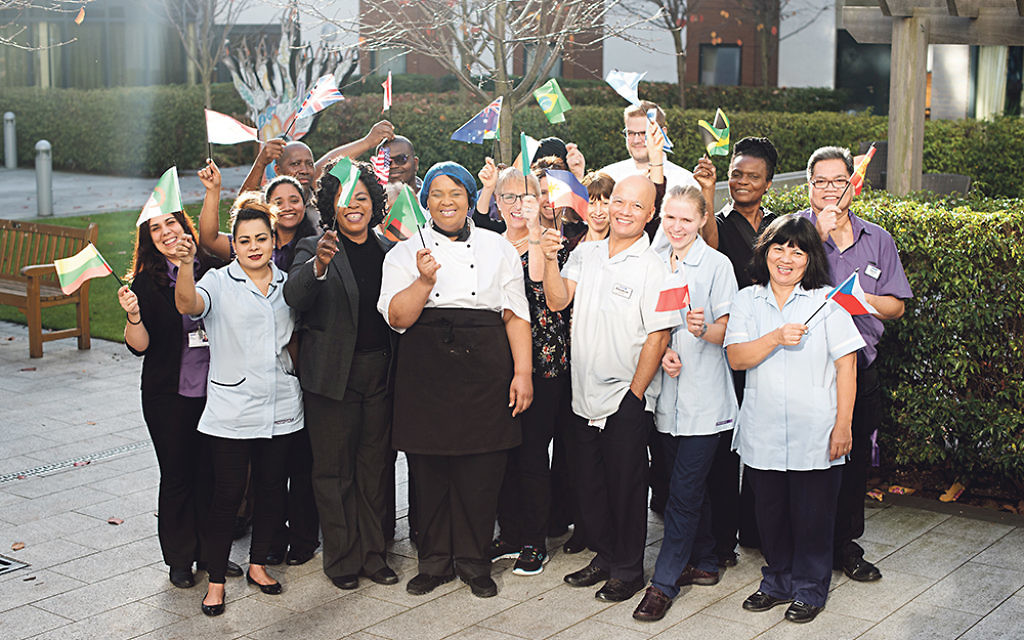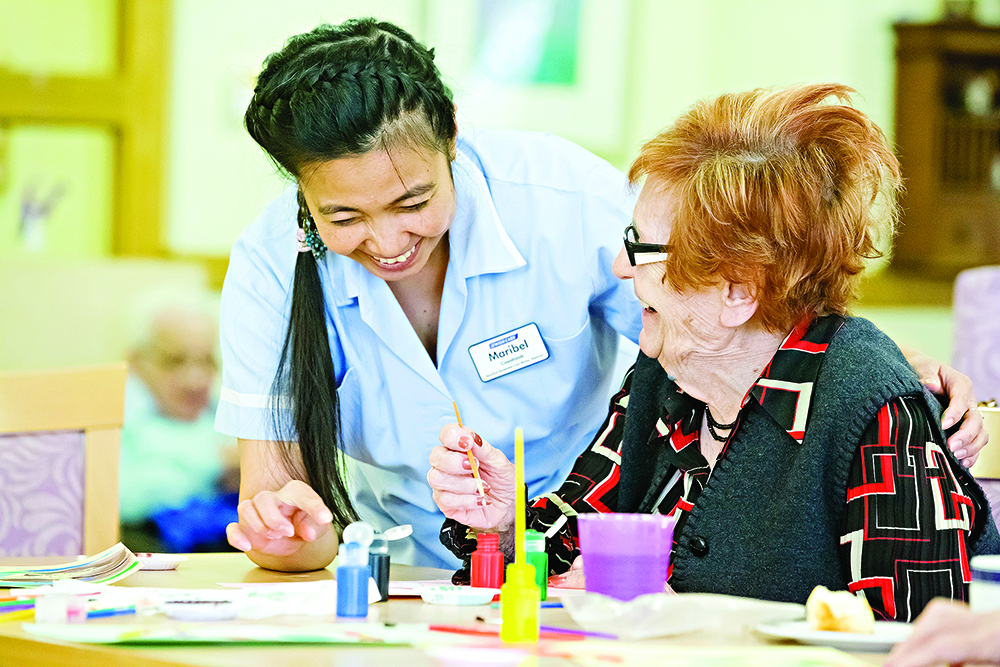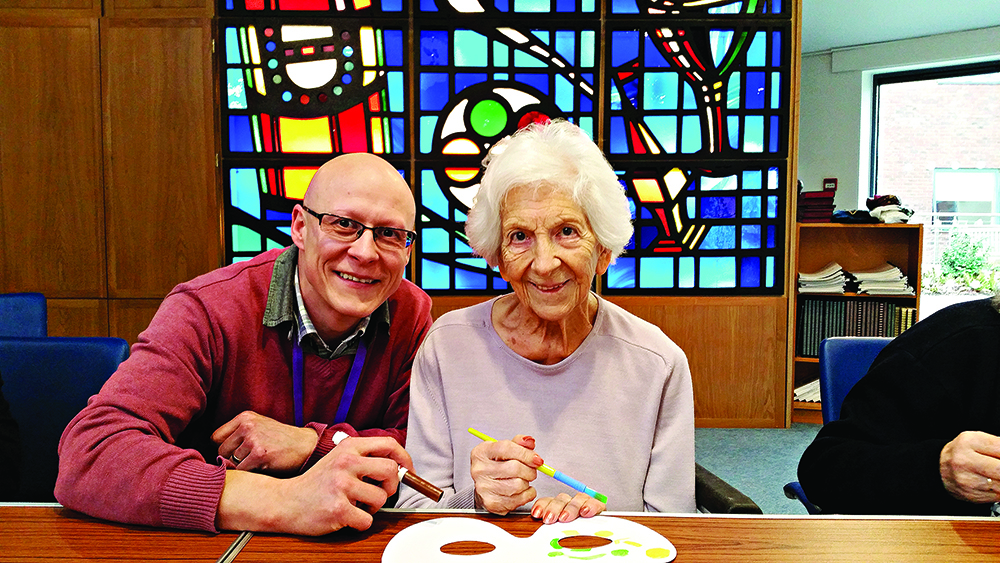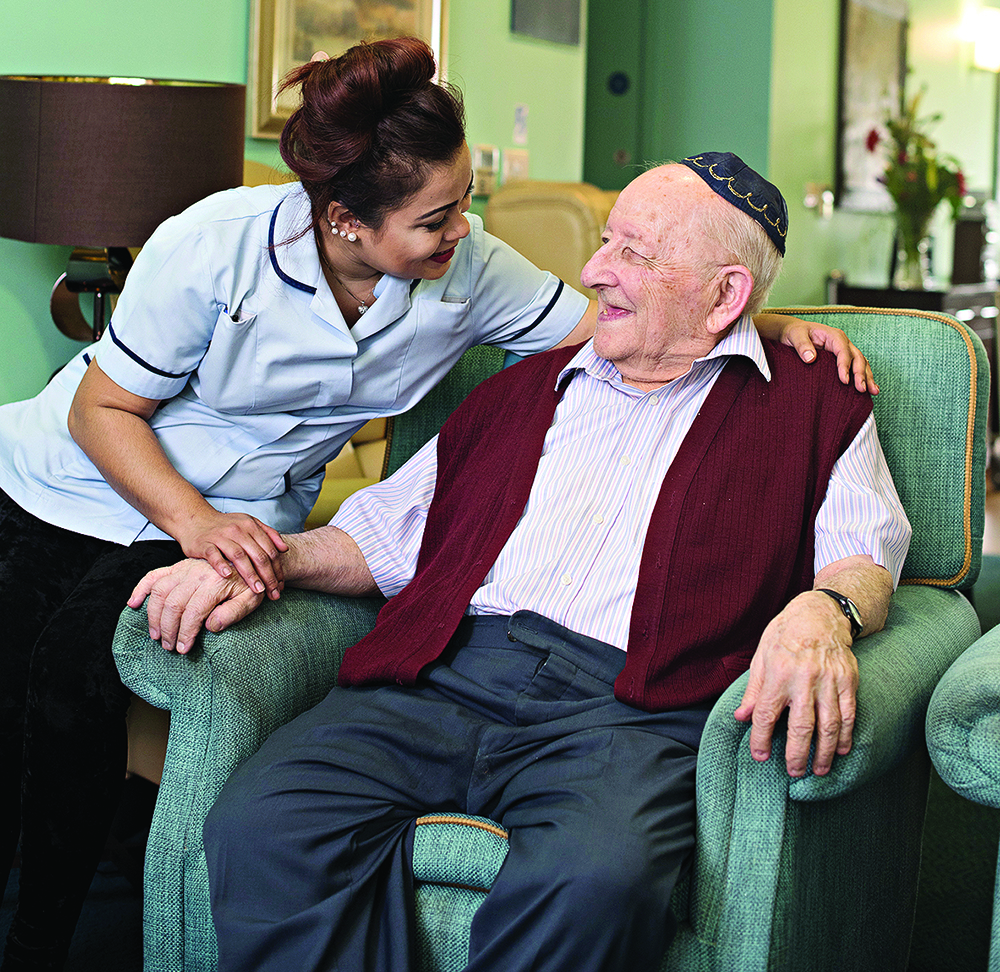What Brexit means for leading Jewish charity
As Parliament clears the way to leave the EU, Caron Kemp considers the consequences for Jewish Care, which employs staff from 71 countries

With the imminent triggering of Article 50, signalling Britain’s official intention to withdraw from the European Union, speculation is rife as to the landscape of this new, unprecedented dawn.
Unable or unwilling to be pinned down regarding the future for EU citizens living in this country, Theresa May has been criticised – even by members of her own party – for failing to guarantee their rights.
So what will this mean for Jewish Care; the largest health and social care organisation in our community? Boasting 1,500 members of staff, representing 71 different nationalities across 350 varied roles and helping some 10,000 people each week,
their résumé makes for highly impressive reading.
Get The Jewish News Daily Edition by email and never miss our top stories Free Sign Up
Except, with the residency status of many key workers now unknown, Brexit could spell great misfortune for this lauded charity.
Pawel Moczulewski came to the UK from Poland 11 years ago and has been working as the living well programme coordinator at the Betty and Asher Loftus Centre
in Friern Barnet for the past eight years, creating a programme of activities for people
who live in the residential or nursing care homes.
“I work with a great team to deliver a variety of activities,” he explains.
“It’s a very creative job and it is constantly changing with endless opportunities so you could never be bored. I get a huge amount of job satisfaction and great appreciation for what I do.” 
And Moczulewski, 35, enjoys working for the Jewish community. “The work ethic, diversity and equality is very much at the top of their priorities,” he explains.
“This community sticks together and looks after each other in a way I really admire. A lot of the residents have also been immigrants themselves so they understand and they are very welcome to new people coming over to UK.”
Albeit hopeful that his job will be safe after Britain’s EU exit, Moczulewski is scathing of the decision.
“I think it has been a mistake. I think people have associated being part of the EU only with the immigration from EU countries and they felt that immediately it is going to change,” he says.
“They don’t understand the contribution that immigrants are bringing and how dependent on immigrants this country is.”

With 15 percent of Jewish Care’s staff hailing from the EU, its reliance on this workforce is only increasing.
A well-publicised shortage of nurses nationally, coupled with stringent requirements for people working on the health and social care frontline has seen Jewish Care continually and happily cast its net far and wide.
Born in Lithuania, 29-year-old Airida Jucyte began her Jewish Care career volunteering in operations. Now an employed member of the finance department, she has a rare love and pride for her job.
“What I really enjoy the most is the workforce diversity and inclusion, which is very characteristic of the organisational culture here at Jewish Care,” she admits.
“People from all walks of life come together to work towards a common goal and there is a place for everyone here, no matter your cultural background, nationality, age, disabilities or sexual orientation. I do not feel excluded or somehow different from others; it feels like home.”
And having moved here two years ago, Jucyte is saddened that things could change.
“I was really surprised by the outcome of the referendum at first, but I think I have accepted the fact by now,” she concludes.
“I’m sure that the UK and EU citizens will have to face a lot of obstacles and changes by leaving the EU.
“I really hope that nothing much will happen, or at least nothing substantial enough to affect me or other people working for Jewish Care or any other organisation.”
Diane Blausten, Jewish Care’s head of human resources argues that the organisation’s successful record in providing quality of care is down to its diverse workforce and focus on the importance of employing people based on their values.
Perhaps this has something to do with the significantly lower than average staff turnover and many awards and accolades it boasts, including being featured in The Sunday Times’ Top 100 Best Companies To Work in 2011 and 2012.
“Our priority is to recruit the best people we can, Jewish or not,” Blausten explains.
“We would love to see an increase of applications from the community, but at the end of the day, we will always recruit the strongest candidate; we would be doing the organisation and community a disservice if we didn’t.”
And so the potential effect of these impending complex negotiations weighs heavy on their minds.
“The truth is none of us know what the impact of Brexit will be on these people,” acknowledges Simon Morris, Jewish Care’s chief executive.
“We will do all we can to support and advise them. One thing is for sure. We
at Jewish Care and colleagues across the health and social care sector, rely on EU nationals.
“We already struggle to recruit quality staff so without them I have no idea what we would do.
“I remain hopeful that the government will come to an agreement and those already living and working in the country will have the right to remain.”

Thank you for helping to make Jewish News the leading source of news and opinion for the UK Jewish community. Today we're asking for your invaluable help to continue putting our community first in everything we do.
For as little as £5 a month you can help sustain the vital work we do in celebrating and standing up for Jewish life in Britain.
Jewish News holds our community together and keeps us connected. Like a synagogue, it’s where people turn to feel part of something bigger. It also proudly shows the rest of Britain the vibrancy and rich culture of modern Jewish life.
You can make a quick and easy one-off or monthly contribution of £5, £10, £20 or any other sum you’re comfortable with.
100% of your donation will help us continue celebrating our community, in all its dynamic diversity...
Engaging
Being a community platform means so much more than producing a newspaper and website. One of our proudest roles is media partnering with our invaluable charities to amplify the outstanding work they do to help us all.
Celebrating
There’s no shortage of oys in the world but Jewish News takes every opportunity to celebrate the joys too, through projects like Night of Heroes, 40 Under 40 and other compelling countdowns that make the community kvell with pride.
Pioneering
In the first collaboration between media outlets from different faiths, Jewish News worked with British Muslim TV and Church Times to produce a list of young activists leading the way on interfaith understanding.
Campaigning
Royal Mail issued a stamp honouring Holocaust hero Sir Nicholas Winton after a Jewish News campaign attracted more than 100,000 backers. Jewish Newsalso produces special editions of the paper highlighting pressing issues including mental health and Holocaust remembrance.
Easy access
In an age when news is readily accessible, Jewish News provides high-quality content free online and offline, removing any financial barriers to connecting people.
Voice of our community to wider society
The Jewish News team regularly appears on TV, radio and on the pages of the national press to comment on stories about the Jewish community. Easy access to the paper on the streets of London also means Jewish News provides an invaluable window into the community for the country at large.
We hope you agree all this is worth preserving.
- Features
- News Features
- jewish care
- Jewish Care Interact
- EU
- Brexit
- social care
- care workers
- Betty and Asher Loftus Centre
- charity
- Friern Barnet
- Theresa May
- Pawel Moczulewski
- Poland
- Britain’s EU exit
- immigrants
- immigration
- Migrant workers
- EU countries
- nurses
- cultural background
- nationality
- age
- Disabilities
- The Sunday Times’ Top 100 Best Companies To Work
- Diane Blausten
- European Union
- News
-
By Brigit Grant
-
By Laurent Vaughan - Senior Associate (Bishop & Sewell Solicitors)
-
By Laurent Vaughan - Senior Associate (Bishop & Sewell Solicitors)
-
By Laurent Vaughan - Senior Associate (Bishop & Sewell Solicitors)
-
By Laurent Vaughan - Senior Associate (Bishop & Sewell Solicitors)





















